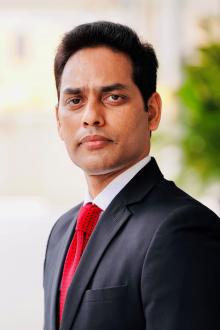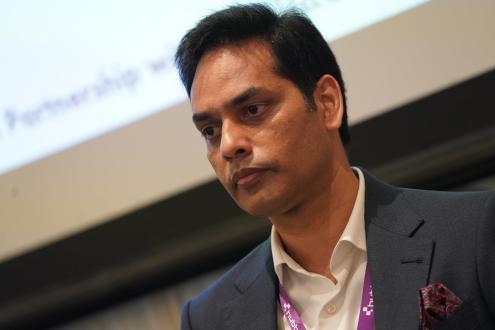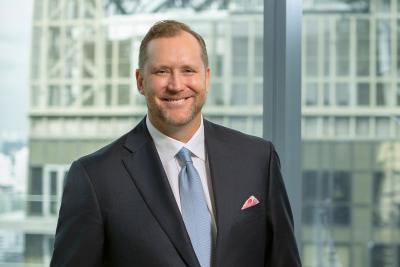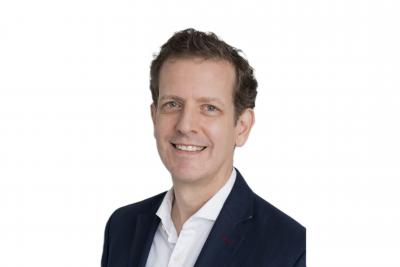Gauraw Srivastava, Managing Director at VNDirect, reviews the State of the Vietnam Wealth Market

Jan 4, 2023
Is Vietnam’s wealth management market developing at the right pace and in the right directions?? Where are the hurdles to growth and where are the best opportunities? Do banks and firms focus on the emerging mass affluent market, or the emerging HNW market, or even the surprisingly large UHNW segment? What are those clients’ needs and expectations? What needs to happen in terms of regulation, diversification of products, elevation of skills and talent, and digitisation in order for the market to fulfil what is so evidently significant potential? Gauraw Srivastava, Managing Director at VNDirect, offered his insights on these and other issues in the first panel discussion of the Hubbis Vietnam Wealth Management Market on November 9.
Moderator: Gauraw, what do you do and what is your vision for the evolution of wealth management in Vietnam?
Gauraw Srivastava: I head the wealth and asset management business for VNDirect, and have been here for about five years, previously helping set up and leading the affluent and wealth business for VPBank here. I joined VNDirect earlier this year.
With my perspective looking back around five years, I saw immense opportunity in terms of economic development, demographics, the rise of the middle class, the rise of private wealth and the speed of growth of financial investments in general. We have now about five to six million trading accounts, more and more mutual fund accounts, and internet penetration rising rapidly and with huge potential for growth.”
Traditionally, he explained that most people put money in deposits, but rates fell through 2020 and 2021, resulting in greater financialisation of wealth, with more money going into market investments, including increasingly various alternate assets. Actually, with interest rates rising rapidly this year, investors have withdrawn and there is more of a reverse trend taking place, but he said that taking the longer-term view, he remains optimistic.
“This is a bit of a rough patch for the mainstream public markets here, but in the wealth management business, we are not talking about six months, we are taking a longer-term view on a very promising market, seeing all the indicators that show confidence, rising consumer activity, better infrastructure, a more diversified economy, exciting demographics, and so forth. This is a fantastic market within Southeast Asia for the wealth business.”
Moderator: Is there market moving from a very transactional mentality to an advice-led approach? And can you deliver that sort of advice at scale?
Gauraw Srivastava: For the banks, scalability is never an issue, you naturally receive a lot of clients, you naturally receive a lot of money, and you have many products and solutions to offer to your clients. When you represent an investment firm, then it becomes much more niche, so naturally you need to go out and acquire clients. The positive is that the clients that you win are more investment mindset clients, so the conversation is easier. They expect value and service from us, and we measure our performance very much on the success of the investment management offering we provide them, asset allocation, risk management, portfolio construction and impartial advice.
There is clearly immense opportunity here, with a population of around 100 million, increasingly well-educated and with rising private wealth. Today, more and more clients are digital, so we can open securities accounts for them, and we have a quite wide range of product choices and approaches that clients can choose from, whether you want to trade yourself, you want us to manage your assets, you want managed funds, private equities, or you want to do it in a separate managed account. Broadly speaking, my metrics for measuring our success are focused on winning the clients, profiling the clients, growing their assets, and building the right portfolios.
Moderator: Can you talk a bit more about client segmentation, and clients’ evolving needs and expectations?
Gauraw Srivastava:
Client segmentation is important here. For the lower categories of wealth, we look at them as retail or priority retail, depending on their AUM. But we then also look at their individual profiles. Are they savers, are they accumulators, are they risk averse or more speculative in their nature. We then provide the right approach and solutions to customers.
In short, our KYC approach goes far, far beyond the basic documentation, mining down to personalisation and the real opportunity.”
If you engage in these types of conversation, you get to know the clients better. If you have an interesting conversation about what your goals are, that leads to product ideas and advice, it helps you and them look to the medium- and longer-term horizons. The market might today [November 9] have slumped below 1000, deep in the red compared to earlier this year, but you can focus on where things could or should be in a few years’ time. Clients here are still on the learning curve, but greater maturity will emerge.
And that makes it very important for the institutions to institutionalise some of the learning programmes so that the advisors get the right training to then provide the right advisory, and clients are constantly engaged to consider the perspective which really best suits them and their goals. I'm not at all saying that everything must be long-term, as the short-term is also very important, cash management for example, but we need to understand their needs and their goals and communicate with them accordingly. So, my way of segmenting would be to understand needs, and understand profiles.
Moderator: Can you talk more about the opportunity around the democratisation of wealth here, especially related to the expanding and very large middle class?
Gauraw Srivastava: I have written articles on the democratisation of wealth management. For long, access to wealth management has been a privilege and more of a dream for most. But when we are talking about Gen-Z, they have a lot of life ahead of them, they have a lot of aspiration, they are middle class people who are trying to boost their children’s education, they're trying to procure their dream house, they want to have holidays. And they want to build wealth and look ahead.
However, the challenges come in how we service them? It's a noble thought that you want to do it. But at the end of the day, we are in the commercial world. Yes, it does for those million-dollar customers, you can offer advice, you can afford an advisor, the cost metrics work out, but how do you scale up your business commercially and profitably into the emerging or smaller wealth segments?
Well, the good news is that the recent years have seen digitalisation increase dramatically. It all used to be face to face, with decisions requiring that personal connection. But that has all changed, so digitalisation is helping us to democratise wealth, and at a significantly lower the cost of service, and complete with the right approach to risk and compliance. My answer is therefore that digitalisation is a great way that can support serving to the mass segment customers.
Finally, education is vital. We ourselves are doing a lot more on both client and advisor education. We need to make sure that RMs can offer the right advice, and that the clients are able to understand more appropriately what they are being offered and what they are buying.

Managing Director at VNDirect

More from Gauraw Srivastava, VNDirect
Latest Articles






